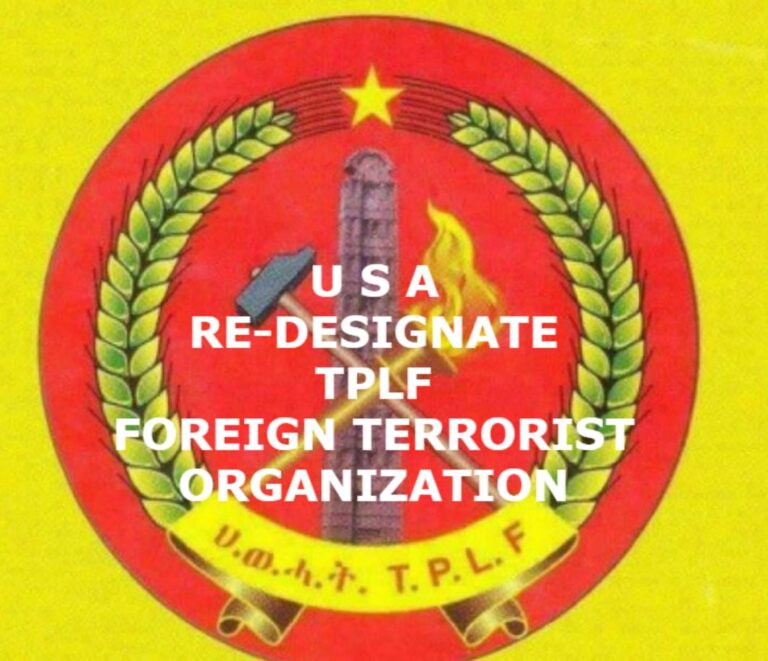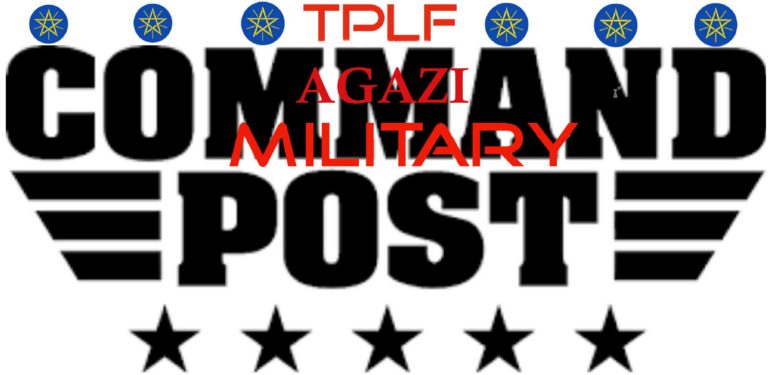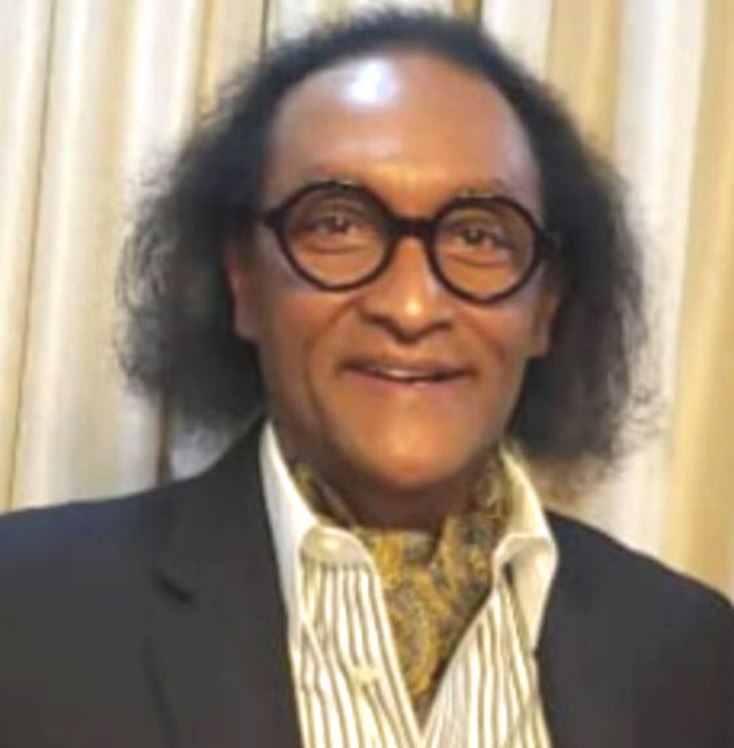Kudos! Trump’s First Year Human Rights Record in Africa
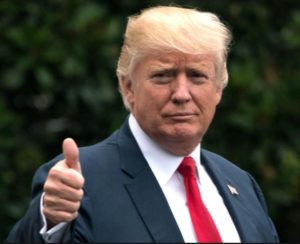 Author’s Note: In this commentary, I offer a personal review of the Trump administration’s human rights record in Africa in 2017.
Author’s Note: In this commentary, I offer a personal review of the Trump administration’s human rights record in Africa in 2017.
On December 21, 2017, with little fanfare, President Donald Trump issued Executive Order 13818 of December 20, 2017 for targeted sanctions “declaring a national emergency with respect to the unusual and extraordinary threat to the national security, foreign policy, and economy of the United States posed by serious human rights abuse and corruption around the world.”
No president in American history has ever issued such an executive order!
In my October 1, 2017 “Letter to President Trump, I requested targeted sanctions against the Tigrean People’s Liberation Front’s (TPLF) regime in Ethiopia, and made the broader case why targeted sanction should be a pillar of U.S. foreign policy.
On December 21, 2017, Trump signed an executive order on targeted sanctions applicable not just to Ethiopia, but to all nations.
I do not claim in any way, shape or form that the Executive Order was occasioned by my letter or anything I have done.
The fact of the matter is that President Trump is the first American president to classify “serious human rights abuse and corruption” as a “threat to American national security, foreign policy and economy”.
That is simply breathtaking!
It is regrettable that virtually no one has noticed the vital and enormous significance of this Executive Order.
Fairness requires that President Trump and Secretary of State Rex Tillerson be given not only full credit but also full commendation for this extraordinary and unprecedented Executive Order.
This Executive Order (discussed below, with full text included) expands the application of the Magnitsky Act to all nations.
The original Magnitsky Act selectively targets Russian officials responsible for the death of Russian tax accountant Sergei Magnitsky in a Moscow prison in 2009. The Executive Order applies that law to all serious and gross human rights violators and corrupt “foreign persons” throughout the world who seek to secrete their ill-gotten loot in the United States of America.
Kudos to President Trump and Secretary of State Tillerson!
2017: Year of Human Rights Accountability in Africa
Barack Obama talked about human rights, corruption and American values in U.S. foreign policy for eight long years.
Back in July 2010, the Obama administration put on a show claiming to put African kleptocrats accountable.
In July 2010, in a breathtaking act of legal diplomacy, U.S. Attorney General Holder travelled to meet Africa’s greatest kleptocrats in Uganda and delivered a staggering message:
The U.S. Department of Justice is launching a new Kleptocracy Asset Recovery Initiative aimed at combating large-scale foreign official corruption and recovering public funds for their intended – and proper – use: for the people of our nations. We’re assembling a team of prosecutors who will focus exclusively on this work and build upon efforts already underway to deter corruption, hold offenders accountable, and protect public resources.
In my November 2011 commentary, “To Catch Africa’s Biggest Thieves Hiding in America!”, I commended the Obama administration for telling Africa’s biggest thieves to their faces, “You can run with Africa’s stolen treasures but you can’t hide them in America!”
The kleptocracy project proved to be all talk. Obama was just putting on a show.
By 2016, six years after the launch of the kleptocracy project, the best that can be said of the kleptocracy project is that “the Justice Department has few solid wins, merely tying up a corrupt foreign leader’s money in the courts is seen as a victory.” Incredible!
By August 2014, Obama was standing shoulder to shoulder with Africa’s most corrupt and bloodthirsty dictators and kleptocrats and wining and dining them at the White House.
In the African rogue’s gallery included such criminals against humanity as Hailemariam Desalegn Boshe (Ethiopia), Paul Biya (Cameroon), Blaise Compaoré (Burkina Faso), Teodoro Obiang Nguema Mbasogo (Equatorial Guniea), Paul Kagame (Rwanda), Joseph Kabila Kabange (DR Congo), Idris Deby (Chad), King Mswati III (Swaziland), Yoweri Museveni (Uganda), Denis Sassou-Nguesso (Rep. of Congo) and many others.
In September 2014, I issued a public confessional, “Shame On Me For Being Proud of President Obama!”. This was my (history’s) verdict on Obama:
The verdict of history shall be that President Obama gave the people of Africa empty words of hope in their time of despair. But he gave corrupt African dictators not only billions of dollars in aid but also moral legitimacy by lionizing them in the court of world public opinion. President Obama has been a sore disappointment to millions in Africa who believed in his promise of “hope and change” and followed his clarion call to go “Forward”. His “audacity of hope” proved to be an audacity of indifference and a source of disillusionment for millions of Africans. Obama offered “change we can believe in.” The verdict of history is, ‘We can’t believe anything changed in Africa during the presidency of Barack Obama!’ No one in Africa believes in President Obama anymore, except the palm-rubbing, panhandling dictators and thugtators. President Obama’s ‘Yes, We can’ slogan in Africa turned out to be, ‘No, we cannot do anything to improve human right conditions in Africa.’
For over a decade, I have argued America is great not because of its economic and military might but singularly because of its ideals of liberty enshrined in the Bill of Rights.
I, born and raised in Ethiopia, became a constitutional lawyer in America to carry on the ideals of the American Bill of Rights, which has been a hard work in progress for the past 226 years. That labor of love shall continue so long as We the People are willing to pay the price of eternal vigilance for our liberties.
As I have explained in great detail in my November 2015 commentary, “America: Saving the Last Great Hope of Humanity From Insanity”, American ideals are what make for American exceptionalism.
I have been asking for targeted sanctions, a Magnitsky-equivalent specifically for Ethiopia dating back to December 16, 2012. I have always believed serious human rights abuses and corruption were a threat to American national security.
The Obama administration ignored my repeated requests, and likely laughed at me as a Quixotic character tilting at windmills.
In my October 1, 2017 “Letter to President Trump, I requested targeted sanctions against the TPLF Regime in Ethiopia and made the case why targeted sanction should be a pillar of U.S. foreign policy.
Trump made it happen not only for Ethiopia but all nations on December 21, 2017 when he issued his Executive Order.
I can confidently say that Trump has done more to support human rights, good governance and accountability in Africa than Obama has done in eight years.
I make this bold statement not merely as a demonstrable factual assertion but also as a direct challenge to anyone to disprove my conclusions based on facts.
By challenge, I do not mean blind, unreasoned, emotional response based on blanket condemnations and derision of Trump personally and speculative allegations about his “lack of understanding and care for Africa”, “bad faith” and the rest of it.
I am talking about counter-facts challenging my conclusion that Trump has done more meaningful, practical things in Africa in less than one year than Obama has in eight years!
I believe Trump has done a hellva a job in U.S. Africa policy in his first year in office.
U.S. Secretary of State Rex Tillerson, in the lead, has done a fantastic job re-orienting U.S. Africa policy from embracing and supporting dictatorships to holding them accountable and practically integrating human rights as a critical part of U.S. foreign policy.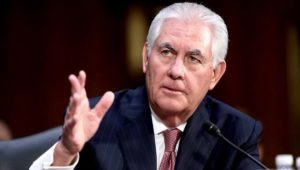
Many in my profession are adept in following Carl Sandburg’s admonition, “If the facts are against you, argue the law. If the law is against you, argue the facts. If the law and the facts are against you, pound the table and yell like hell.”
There are many “out there” who would pound the table about the Trump administration’s human rights policy in Africa and in general. Some even in hyperbolic rhetoric ask, “Can Human Rights Survive the Trump Era?”
But do they have the facts about what has been accomplished in human rights in Trump’s first year in office?
I do.
Let me start with a somewhat embarrassing personal confession.
In my December 2016 commentary, “President Trump: Out of Africa”, I wrote:
There is no chance that I could be disappointed by the Trump Administration’s failure to do the right thing in Africa. I fully expect President Trump, just like President Obama, to watch Africa mired in corruption, human rights violations, bad governance, wars, conflicts and violence with indifference and nonchalance. If I am proven wrong in the slightest, I ‘shall eat crow’, the ultimate blasphemy a vegan could possibly commit.
I could not have been more WRONG, Wrong, wrong!
Suffice it to say, I have been eating the proverbial crow, vegan style, of course, and humble pie for desert, for the last ten months or so.
In January 2016, Trump’s transition team asked four penetrating questions about U.S. policy in Africa. I was simply stunned by the surgical precision of the questions:
1) “With so much corruption in Africa, how much of our funding is stolen?”
2) “We’ve been fighting al-Shabaab for a decade, why haven’t we won?”
3) “How does U.S. business compete with other nations in Africa? Are we losing out to the Chinese?”
4) “Why should the U.S. continue the Africa Growth and Opportunity Act [AGOA] which provides massive support to corrupt African regimes?”
The Obama administration, NEVER, NEVER asked these questions!
In February 2017, when Trump called African leaders for the very first time for a chat, he called Nigerian president Muhammadu Buhari and South African president Jacob Zuma, and no other African leaders. He did not call Obama’s Darlings, the leaders of the Thugtatorship of the Tigrean People’s Liberation Front (T-TPLF).
In my February 27, 2017 Letter to President Trump, I endorsed the foregoing questions and protested the abuse of our bedrock constitutional right to petition our government by foreign regimes spending millions of dollars to peddle undue influence. That letter exposed the millions of dollars spent by the T-TPLF on lobbying fees to influence the Trump administration, while at the same time begging for more American tax dollars.
In my March commentary in The Hill, “Trump’s suspicion of foreign aid to Africa is right on the money,” I argued that the era of U.S. foreign policy of aid handouts and alms giving to Africa generously supported by American taxpayers, without strict accountability, must end. That accountability has started with Egypt and Somalia within the last four months.
Trump’s transition team asked, “We’ve been fighting al-Shabaab for a decade, why haven’t we won?”
The answer is simple. You can’t win against al-Shabaab when defeating al-Shabaab means an end of the meal ticket of African beggar regimes.
The pressure has mounted on al-Shabaab in 2017. According to U.S. Africa Command (AFRICOM), the U.S. has conducted 18 airstrikes in Somalia “more than four times the average for the previous seven years. At the same time, the number of U.S. forces in Somalia has more than doubled.” If you want something done right, do it yourself. No panhandling proxies. No mercenaries.
In April 2017, Tillerson cancelled a meeting with African Union chair Moussa Faki”. Tillerson invited Faki to Washington but changed his mind. Tillerson’s team offered Faki a chance to see lower level State Department officials instead, but that meeting never materialized.” I think I know why.
In my May 2017 commentary in The Hill, “US doesn’t need Ethiopia in its war on terror in the Horn of Africa”, I argued, “The Trump administration appropriately questions how much of the aid given by the U.S. to Africa is susceptible to corruption, fraud, abuse and waste in Africa.” I urged the administration to de-link its counterterrorism strategy from the Ethiopian regime and made it clear that Ethiopia’s involvement is arguably the principal galvanizing cause for the radicalization of large numbers of Somali youth flocking into the welcoming arms of al-Shabaab and other militant Islamic groups.
On May 3, 2017, in Remarks to U.S. Department of State Employees”, U.S. Secretary of State Rex Tillerson said, “Guiding all of our foreign policy actions are our fundamental values: our values around freedom, human dignity, the way people are treated. These are our values… not our policies… Policies change… our values never change.”
In April 2017 when U.S. Secretary of Defense Jim Mattis went to the Middle East and Africa to discuss counterterrorism, he visited the tiny nation of Djibouti, not Ethiopia, the counterterrorism darling of the Obama administration. Mattis did not visit Obama’s darlings in Ethiopia!
While Obama wined and dined African dictators at the White House, Secretary of State Rex Tillerson canceled a meeting with the African Union Commission Chairperson Moussa Faki and offered to have him meet with “lower level State Department officials”.
In my May 29, 2017 commentary, “Ethiopia at tipping point as Congress mulls human rights bill”, I supported passage of H.R. 128 and S.R. 168 designed to “support respect for human rights and encourage inclusive governance” in Ethiopia.
In my June 2017 commentary in The Hill, “US should drop out of UN Human Rights Council”, I supported the Trump administration’s decision to withdraw from the HRC because that organization has the “presence of multiple human rights-violating countries on the Human Rights Council has damaged both the reputation of the council and the cause of human rights: a human dignity is discredited.”
In my July 2017 commentary, “Trump’s Africa policy should end US aid to dictators, rights abusers”, I supported the Trump administration’s decision to drop out of the Human Rights Council.
It is ironic that those who are criticizing Trump on Africa today seemed to have taken a vow of silence when Barack Obama befriended and wined and dined the most ruthless African dictators and overlooked their deplorable human rights and corruption records in the name of counter-terrorism cooperation.
I further argued that the best way Trump can help Africa is by ending the insidious culture of competitive panhandling on the continent and ensuring that American national security and tax dollars are not entangled with the toils of African dictatorships.
In my August commentary, The Dawn of a New Era in U.S. Human Rights Policy in Africa: Is Ethiopia Next?”, I commended Secretary Tillerson for notifying Egypt that the U.S. will withhold $95.7 million in military and economic aid, and would only release $195 million in additional military aid after it makes progress in its human rights record.”
In August 2017, Tillerson unabashedly declared, “We express America’s values from the State Department — our commitment to freedom, our commitment to equal treatment of people the world over. And that message has never changed.” Tillerson says what he means and means what he says.
In September 2004, Colin Powell was in a quandary about Darfur as he minced his words to the Senate Foreign Relations Committee, “There is the matter of whether or not what is happening in Darfur is genocide.” Of course, the whole world knew genocide was taking place in Darfur beginning in 2003.
In September 2017, Trump said, “Seychelles stands as a model for other African economies as one of the top per-capita-income countries in the region.” He did not mention as an African economic model that country whose “leaders” have been bragging about a bogus “double-digit growth over the past decade.”
In my October 20, 2017 commentary, “Thanking the U.S. Embassy in Ethiopia for Standing and Walking on the Right Side of History”, the U.S. Government stated, “We encourage all Ethiopians to continue to express their views peacefully, and encourage Ethiopian authorities to permit peaceful expression of views.” That includes the right to protest peacefully without being massacred by the T-TPLF.
This is what standing on the right side of history means. Standing with the people, not standing with African dictators and wining and dining them at the White House.
The Obama administration would NEVER, NEVER have said, “We encourage all Ethiopians to continue to express their views peacefully”.
On November 22, 2017, Tillerson did not mince his words when he said, “After careful and thorough analysis of the facts, it is clear that the situation in northern Rakhine State constitutes ethnic cleansing against the Rohingya.”
In my December 3, 2017 commentary, “Why I Support Rex Tillerson’s State House Cleaning”, I expressed full support for Tillerson’s long overdue structural reform to create a lean, mean and nimble State Department for the 21st century.
On December 14, 2017, the U.S. announced it “is suspending food and fuel aid for most of Somalia’s armed forces over corruption concerns” and because “failed to meet the standards for accountability for U.S. assistance”. The evidence showed “stark picture of a [Somali] military hollowed out by corruption, unable to feed, pay or arm its soldiers – despite hundreds of millions of dollars of support.”
Such action would NEVER, NEVER have been taken by the Obama administration.
Pleading for extension of the Magnitsky Act to Ethiopia
For years, I have been pleading with the Obama administration for an extension of the Magnitsky Act to Ethiopia.
The Magnitsky Act aimed to punish Russian officials responsible for the death of Russian tax accountant Sergei Magnitsky in a Moscow prison in 2009. The Act was limited to Russian officials.
In my December 2012 commentary, “Will the U.S. Stand by the Side of Brave Africans?”, I urged President Barack Obama to adopt the equivalent of a Magnitsky Act against the leaders of the TPLF and urged legislative action that would extend the Magnitsky Act to leaders, officials and associates of the TPLF involved in serious human rights violations and corruption. I wrote:
There are thousands of “Ethiopian Magnitskys” who have been denied justice, languishing in prison and forgotten. For starters, there has been no accountability for the post-2005 election massacres in which, according to an official Ethiopian Inquiry Commission, some 200 unarmed demonstrators were gunned down and another 800 wounded by security and police officials of the regime. There is a certified list of at least 237 individuals known to be involved or strongly suspected of direct involvement in these crimes against humanity. It is mandatory that these officials be brought to trial without delay…
As far as I am concerned, what is good enough for the brave Sergei Magnitsky of Russia is good enough for the brave Melesachew D. Alemnew, age 16, Hadra S. Osman, age 22, Etenesh Yimam, age 50, Teodros Gidey Hailu, age 23, Gashaw T. Mulugeta, age 24, Lechisa K. Fatasa, age 21…. of Ethiopia!
Yes, We Can have an “Ethiopian Magnitsky Law”! With a little help from our friends!
Well, thanks (but no, thanks!) to Barack Obama, we never got an Ethiopian Magnitsky Law.
Barack Obama talked about standing on the right side of history until our ears fell off. Talk, talk, talk… Never walked the talk.
In my October 1, 2017 “Letter to President Trump Requesting Targeted Sanctions Against the TPLF Regime in Ethiopia”, I urged:
I believe selective and targeted sanctions such as the one imposed against South Sudanese leaders and companies can serve as effective tools of an America-first foreign policy in advancing the cause of human rights globally, and particularly in Africa. Targeted sanctions selectively and purposefully focus on leaders, their family members and supporters, political elites and segments of society known to be directly responsible for human rights violations or in aiding, abetting and giving material support in the commission of such violations. Blanket sanctions are more likely to inflict greater hardship and suffering on the general population, and often those engaged in gross human rights violations find ways to circumvent them. It has been observed that “targeted sanctions” or “smart sanctions” are like “smart bombs”, considerably reducing collateral damage on civilian populations.
I believe in the old saying, “What is sauce for the goose is sauce for the gander.” What is good for South Sudan is good for Ethiopia.
I am requesting that you follow up with targeted sanctions against current and senior members of the “Ethiopian People’s Revolutionary Democratic Front” led and dominated by the Tigrean People’s Liberation Front and other entities aiding and abetting that regime in the commission of human rights violations in Ethiopia. The evidence of human rights violations supporting targeted sanctions against the TPLF regime is overwhelming, incontrovertible, substantial and compelling…
President Trump has delivered well beyond my expectations.
Of course, I do not claim in any way, shape or form, that the Executive Order of December 21, 2017 is a response to my letter requesting targeted sanctions.
But I have good reason to believe that I was heard in the Administration. That is all I ever wanted. An opportunity to be heard. An opportunity to speak truth to power and be heard.
President Trump’s Executive Order personally signifies to me that I have been heard.
The Executive Order “declares [there is] a national emergency with respect to the unusual and extraordinary threat to the national security, foreign policy, and economy of the United States posed by serious human rights abuse and corruption around the world.” (Emphasis added.)
The Executive Order “blocks the property and interests in property of any foreign person determined by the Secretary of the Treasury, in consultation with the Secretary of State and the Attorney General.” (Emphasis added.)
The Executive Order applies to any foreign person who is “(1) responsible for or complicit in, or to have directly or indirectly engaged in, serious human rights abuse; (2) a current or former government official, or a person acting for or on behalf of such an official, (3) complicit in, or has directly or indirectly engaged in (a) corruption, including the misappropriation of state assets, the expropriation of private assets for personal gain, corruption related to government contracts or the extraction of natural resources, or bribery; or (b) the transfer or the facilitation of the transfer of the proceeds of corruption…”
To Trump’s detractors on human rights in Africa, all I have to say is this: Obama talked a good talk on being on the right side of history on human rights for eight long years. Trump walked on the right side of history in less than twelve months.
Action speaks louder than words.
Trump’s one executive order on human rights is worth tens of thousands of pontificating words from Obama jabbering about the “right side of history”.
Could the Trump administration have done more to improve human rights in Africa in its first year?
Hell, yeah!
Should the Trump administration be commended for extraordinary achievements in Africa policy in its first year compared to the Obama administration’s eight years in office?
Damn right!
Could we expect more action from the Trump administration in the coming years holding African dictators and thugtators accountable for their abuse, waste and fraud of American taxpayer dollars?
Ain’t no doubt about it!
Will it be a long and hard struggle implementing the expanded Magnitsky Executive Order.
Yep!
But the die is cast.
There is an old Ethiopian saying, “A horse will get you to the battlefield, but will not fight for you.”
Those who advocate for human rights must now do the heavy lifting in getting the law applied to every corrupt, human rights violating crook from Africa (and elsewhere) finding a safe haven in the lap of luxury in America. We must raise our voices and work with the administration to get the law implemented in Ethiopia, Africa and the rest of the world.
I believe in fundamental fairness. “I calls ’em like I sees ’em.” And I likes what I sees in what the Trump administration has done promoting human rights, aid and corruption accountability and good governance in Africa.
To those who do not like the facts, they have the option of pounding the table and screaming at the top of their lungs that Trump is the “most anti-human rights president ever” for Africa and invent their own fake facts. Or they can deal with the facts as they are!
Do I regret calling Trump an Obama clone on Africa?
Well, let me answer it this way. I can’t eat my words. So, I have to eat vegan-style crow and humble pie. Let me tell ya, they don’t taste so good either!
Text of a Letter (Executive Order) from the President to the Congress of the United States
Issued on: December 21, 2017
TO THE CONGRESS OF THE UNITED STATES:
Pursuant to the International Emergency Economic Powers Act, as amended (50 U.S.C. 1701 et seq.) (IEEPA), I hereby report that I have issued the enclosed Executive Order (the “order”) declaring a national emergency with respect to the unusual and extraordinary threat to the national security, foreign policy, and economy of the United States posed by serious human rights abuse and corruption around the world. In addition to taking action under IEEPA, the order implements the Global Magnitsky Human Rights Accountability Act (Public Law 114-328) (the “Act”) and delegates certain of its authorities.
The order blocks the property and interests in property of persons listed in the Annex to the order. It also blocks the property and interests in property of any foreign person determined by the Secretary of the Treasury, in consultation with the Secretary of State and the Attorney General:
(1) to be responsible for or complicit in, or to have directly or indirectly engaged in, serious human rights abuse;
(2) to be a current or former government official, or a person acting for or on behalf of such an official, who is responsible for or complicit in, or has directly or indirectly engaged in:
(a) corruption, including the misappropriation of state assets, the expropriation of private assets for personal gain, corruption related to government contracts or the extraction of natural resources, or bribery; or
(b) the transfer or the facilitation of the transfer of the proceeds of corruption;
(3) to be or have been a leader or official of:
(a) an entity, including any government entity, that has engaged in, or whose members have engaged in, any of the activities described in (1), (2)(a), or (2)(b) above relating to the leader’s or official’s tenure; or
(b) an entity whose property and interests in property are blocked pursuant to the order as a result of activities related to the leader’s or the official’s tenure; or
(4) to have attempted to engage in any of the activities described in (1), (2)(a), or (2)(b) above.
The order also blocks any person determined by the Secretary of the Treasury, in consultation with the Secretary of State and the Attorney General:
(5) to have materially assisted, sponsored, or provided financial, material, or technological support for, or goods or services to or in support of:
(a) any activity described in (1), (2)(a), or (2)(b) above that is conducted by a foreign person;
(b) any person whose property and interests in property are blocked pursuant to the order; or
(c) any entity described in (3)(a) above where the activity is conducted by a foreign person;
(6) to be owned or controlled by, or to have acted or purported to act for or on behalf of, directly or indirectly, any person whose property and interests in property are blocked pursuant to the order; or
(7) to have attempted to engage in any of the activities described in (5) or (6) above.
In addition, the order suspends entry into the United States of any alien listed in the Annex or determined to meet one or more of the criteria above.
I have delegated to the Secretary of the Treasury the authority, in consultation with the Secretary of State, to take such actions, including adopting rules and regulations, and to employ all powers granted to the President by IEEPA and the Act, as may be necessary to implement the order and relevant provisions of the Act. I have delegated to the Secretary of State the authority to take such actions, including adopting rules and regulations, and to employ all powers granted to the President by IEEPA and the Act, as may be necessary to implement the provisions of the order and the Act suspending entry into the United States of certain aliens. All executive departments and agencies are directed to take all appropriate measures within their authority to implement the order.
DONALD J. TRUMP
THE WHITE HOUSE
December 20, 2017.
The White House



